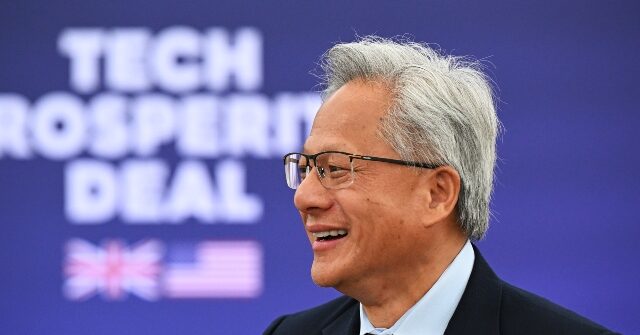Nvidia has announced a massive $100 billion investment in OpenAI, sending ripples through the tech industry and boosting shares of semiconductor companies globally.
CNBC reports that Nvidia has unveiled plans to invest a staggering $100 billion in OpenAI, the AI company behind ChatGPT. The announcement sent shockwaves through the global chip sector, with companies linked to Nvidia experiencing a notable boost in their share prices.
According to Nvidia CEO Jensen Huang, the deal between the two tech giants is set to be on an unprecedented scale. OpenAI intends to construct and deploy Nvidia systems that will require 10 gigawatts of power, equivalent to the output of between four and five million graphics processing units (GPUs).
In a blog post, Nvidia calls the deal “the Biggest AI Infrastructure Deployment in History:”
The partnership expands on a long-standing collaboration between NVIDIA and OpenAI, which began with Huang hand-delivering the first NVIDIA DGX system to the company in 2016.
“This is a billion times more computational power than that initial server,” said Greg Brockman, president of OpenAI. “We’re able to actually create new breakthroughs, new models…to empower every individual and business because we’ll be able to reach the next level of scale.”
Huang emphasized that though this is the start of a massive buildout of AI infrastructure around the world, it’s just the beginning.
The news of this substantial investment triggered a rally on Wall Street, with the positive sentiment extending to the global chip sector, particularly affecting companies with established connections to Nvidia. In Taiwan, shares of Taiwan Semiconductor Manufacturing Co. (TSMC), which manufactures chips for Nvidia, closed 3.5 percent higher. Similarly, South Korea’s SK Hynix, a supplier of memory chips used in Nvidia’s systems, saw its shares rise by more than 2.5 percent at the end of the trading session. Samsung, a rival to SK Hynix, also experienced a 1.4 percent increase in its stock price, despite not currently supplying Nvidia with its high-bandwidth memory chips. However, markets are optimistic that Samsung will soon receive the green light to do so.
The positive impact of the Nvidia-OpenAI deal was not limited to chip manufacturers alone. Equipment suppliers, such as Tokyo Electron, which is listed in Japan, also witnessed a rise in their stock prices at the close of trade in the country. Ben Barringer, a global technology analyst at Quilter Cheviot, emphasized that the semiconductor industry is a broad market with numerous suppliers, and the deal’s benefits are not confined to a single winner. “While this deal may be negative in the short-term for Nvidia’s competitors, it is a sign that the AI trade is alive and well,” Barringer remarked.
Breitbart News previously reported that Nvidia has made a $5 billion investment in Intel, creating a pathway to success for the troubled chipmaker:
The deal is not just about capital. Nvidia and Intel have agreed to jointly develop new products for data centers and personal computing, leveraging each company’s strengths. Intel will manufacture Nvidia-custom x86 CPUs, which Nvidia will integrate into its AI infrastructure platforms. Additionally, Intel will build chip systems for Nvidia chiplets, the modular components that power next-generation PCs. This collaboration is expected to expand both companies’ ecosystems and lay the groundwork for what Nvidia CEO Jensen Huang calls “the next era of computing.”
This partnership comes at a critical time for Intel. The company has faced years of retreat and layoffs, losing ground in the fast-evolving market for AI-related chips — a space where Nvidia has excelled. However, recent moves suggest a concerted effort to reverse this decline. Just last month, Intel secured a $2 billion investment from SoftBank and received a significant boost from the Trump administration, which took a 10 percent stake in the company as part of an extraordinary intervention to support its turnaround.
Read more at CNBC here.
Lucas Nolan is a reporter for Breitbart News covering issues of free speech and online censorship.
Read the full article here
